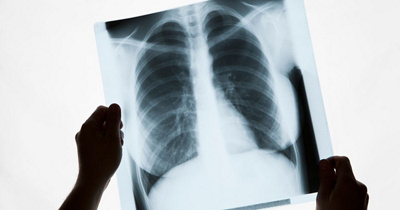Dr Emmanuel Taban brings world-class pulmonology care, as well as pro bono primary healthcare, to patients in rural Mpumalanga.
When a nurse once told a young Emmanuel Taban that he’d grow up to become a doctor, the thought was “absurd”, he says. “The possibility of being able to survive beyond childhood was difficult to imagine – let alone being able to go to school.”
Today, Taban holds three medical degrees, and recently became qualified to offer expert pulmonology care at Mediclinic Midstream.
Dr Taban left his home country of the Republic of South Sudan at the age of 16, after his father was killed in the South Sudanese Civil War. He completed his secondary education with the help of charity groups, including Mercy House, and went on to study medicine at Medunsa University.
“I realise now that the nurse saw something in me that was beyond my poverty and surroundings,” he says. “She saw what I could become, beyond all limitations. She saw potential. I had a very difficult childhood – but I used every opportunity I could to educate myself.”
Having qualified as a physician, Dr Taban settled on specialising in internal medicine during his period of community service. It was during this time, when he was based in Secunda, Mpumalanga, that he began to see the need for a local pulmonology specialist.
Pulmonology is a medical field that addresses diseases involving the respiratory tract. Pulmonologists usually see patients with advanced cases of asthma or tuberculosis, and Dr Taban says the small mining towns of Mpumalanga are home to a unique mix of risk factors.
“We see a lot of patients with lung disease, which is exacerbated by the effects of coal mining and air pollution. Getting a pulmonologist appointment at the time was extremely difficult – and very expensive. The vast majority of the population couldn’t afford to get the treatment they required as they were of a low socioeconomic status, had no transport as well as a lack of adequate medical insurance.”
Given his own personal history as a war refugee, Dr Taban says this was devastating to witness, and was inspired to study further, in order to offer his patients a higher standard of care.
Qualifying was step one; setting up a private practice came next. Dr Taban credits Mediclinic Highveld and Mediclinic Midstream for their assistance, as part of Mediclinic’s extensive practice development programme. “Starting up a practice is very expensive. Mediclinic Highveld offered me financial support and set up my practice, which included giving me all the equipment I required as well as completely furnishing my rooms. They were extremely supportive both financially and emotionally, and marketed my services throughout the area. When I made the decision to sub-specialise in pulmonology Mediclinic was not only supportive but they also offered me a full bursary – and helped set up my practice at Mediclinic Midstream as well.”
Dr Taban’s patients present with symptoms of pneumoconiosis, a disease of the lungs caused by chronic inhalation of dust, characterised by inflammation, coughing and fibrosis, and interstitial lung diseases, which cause progressive scarring of lung tissue.
But he hasn’t stopped there. He also provides pro bono primary healthcare services to patients in a local Secunda retirement home, and assists with giving pulmonary function tests at nearby Bethal Provincial Hospital. “I have experienced how one person can make a huge difference in the direction one’s life could take. I see my practice as an opportunity to make a difference in my community.”
Providing for his patients gives Dr Taban a deep sense of personal fulfillment. “Being a doctor was always regarded as being one of the smartest people and my desire to achieve this pulled me in that direction. I love this job and I couldn’t imagine doing anything else. It brings out my personality and allows me to be everything that I want.”
Disclaimer: The information provided in this article was correct at the time of publishing. At Mediclinic we endeavour to provide our patients and readers with accurate and reliable information, which is why we continually review and update our content. However, due to the dynamic nature of clinical information and medicine, some information may from time to time become outdated prior to revision.

